Five Myanmar journalists, aged 22-28, have been hit with ten years in prison at hard labor for covering charges the government is producing chemical weapons. PRSA, whose "PR for PR" includes commenting on current topics, is silent.
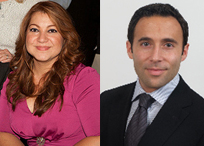 |
The draconian sentences, coming after two reporters got seven years and another got ten in Egypt, brought howls from just about all sectors of the communications industry save one—the PR Society. The 1978 movie, "Midnight Express," captured what it's like to be in such prisons. Canadian flimmaker John Greyson on Jan. 28, 2014 described 50 days in Egypt's Tora prison.
Roya Nobakht, 47, a U.K. citizen who was visiting in Iran, was sentenced to 20 years in the infamous Evin prison for allegedly insulting Islam on Facebook, Fox News reported. It is described as "Hell on earth."
The Society, since Rosanna Fiske's term in 2011, has publicized itself by commenting on all sorts of ethics-related PR and journalistic issues, often using the strongest terms.
Fiske is mentioned 843 times on the Society website, far above the 503 generated for 2012 chair Gerard Corbett; 225 for 2013 chair Mickey Nall and 554 for 2014 chair Joe Cohen.
Many of the mentions are committee and board memberships. Cohen's total is enlarged because several others named Cohen are in his roundup.
Cohen has steered clear of topics in the news so far but the slack has been taken up by chair elect Kathy Barbour, who on Feb. 15 praised CVS for not selling tobacco products.
Cohen on April 8 posted on the Society website that, "It was ironically over my morning cup of java that I learned from Bill Murray (who joined the National Coffee Assn.) that he will be leaving the Society this June…"
Murray announced his resignation on March 7, a month before, but the news apparently didn't reach Cohen until April 8 so we wonder how close he is to Society matters?
Corbett in June 2012 called unpaid internships unethical if paid-for-work is being done."
Fiske Was Most Outspoken
Fiske, now VP-corporate communications, Wells Fargo, Florida, lambasted Burson-Marsteller in a 726-word statement May 12, 2011 to Ragan's PR Daily, saying its spreading of negatives about Google for Facebook "called into question PR professionals' ethics" and "we all lost."
She not only published the statement via Ragan's and on the Society website, but gave live interviews to the New York Times (twice), Wall Street Journal, USA Today, The Financial Times and U.K.'s Telegraph. Advertising Age and Der Spiegel of Germany picked up her quotes.
Fiske was again outraged when New York Post columnist John Crudele wrote July 19, 2011 that PR's job is to "make bad news sound not so bad."
She charged, in a letter-to-the-editor, that his definition of PR "couldn't be further from reality" and that PR people are the ones who give Americans "a realistic view of the state of affairs in America."
Another Fiske foray into ethical matters was criticism of News Corp. for its initial response to phone-hacking charges.
She wrote July 18, 2011 that Rupert Murdoch "has demonstrated a profound lack of understanding of how his actions and words influence the public's perception of his company and his employees" and said News Corp. has taken a "monumental hit."
PR Staffer Knocked "Blackballing"
Although usually quick to scold, Fiske let associate PR director Keith Trivitt condemn alleged "blackballing" of media by The Redner Group, which said it would shun reporters who knocked the new "Duke Nukem Forever" game.
The Society, of course, has blackballed the O'Dwyer Co. in writing and practice for decades. We were bodily evicted from the lobby of the Marriott hotel in S.F. in 2012 and ordered to stand across the street. We have been banned from the exhibit hall for four years and 2014 will be the fifth unless someone such as Starbucks puts their foot down. Jim Olson of Starbucks is co-chair of the conference in D.C. Oct. 11-14.
It would have been hypocritical for Rosanna to put her name to a statement that said, "Threatening to punish publications that do not write favorable reviews for a product or service is against a core tenet of ethical PR…"
Where are such strong opinions when journalists are sent to prison for long terms on bogus charges?
VP-PR Stephanie Cegielski told us the jailings are a matter for the Society of Professional Journalists.
However, many people in PR came out of the media and many are now shifting from journalism to PR because so many J jobs are disappearing. Most members deal constantly with traditional media as well as social media and identify and sympathize with problems reporters have, especially long prison terms on trumped-up charges.
In this regard, the Society is out of step with its members. No Society staffer, including Cegielski and PR manager Roseanne Motolla, has any background in traditional media as far as we can determine. Only eight of the nearly 60 staffers are listed on the website.
Press Belong in PR Society
There is no logical reason for blocking reporters and writers from joining the Society. Staff and leaders don't want the PR trade press as members because we will write about its finances, the Assembly and other matters.
We will cover such abuses as having the Assembly on a Saturday when it should be at the end of the day on Monday, thus saving nearly 300 people two extra nights of hotel and meal costs. The Assembly, this year and last, is now only a half day—devoted to more than a dozen leader/staff speeches. The only thing it did in 2013 was give the CEO title to Bill Murray who resigned less than six months later.
Examples abound of journalists and writers belonging to the Society. Most famous are Gil Schwartz of CBS who writes for Fortune and other media as Stanley Bing and Fraser Seitel, who has made hundreds of appearances on radio and TV as PR's leading spokesperson. He has also been an O'Dwyer columnist for ten years. He is author since 1980 of one of the three leading PR texts—The Practice of PR. Seitel was also editor of the Society's Strategist quarterly for its first five years.
Schwartz was a Society member in 2003 when his journalistic activities were well known.
Seitel was a member of the Society from 1985-91 when he was VP/PR, Chase Manhattan Bank, and from 1992-2001 as principal of Emerald Partners, Fort Lee, N.J.
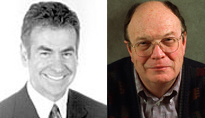 |
Other authors/journalists who are or were prominent members (we can't check current member lists) include the authors of other leading PR texts—Dennis Wilcox, PR Strategies & Tactics; Dan Lattimore, PR, The Profession and the Practice, and Douglas Ann Newsom, This is PR: The Realities of PR.
Numerous prominent members are authors including Robert Dilenschneider, Power and Influence, The AMA Handbook of PR and several others.
The Society's Educators Academy, comprising more than 350 PR teachers, all of whom are under the edict to "publish or perish," fulfill the definition of journalist.
Public Relations Journal, a digital quarterly of the Society, has numerous journalistic pieces. Its "editor-in-chief" is now Prof. Robert Wakefield of Brigham Young University, succeeding Prof. Don Wright of Boston University after seven years. Many of its contributors are Society members and would be object if their work were described as PR. It's journalism (the name of the quarterly).
Hedge Fund to the Rescue?
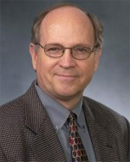 |
Two of the biggest supporters of the Society, Vocus and Cision (Silver $20k sponsors of the 2014 conference) are now owned by the $11 billion GTCR hedge fund of Chicago. We're hoping the managers will look at this situation.
Vocus and Cision provide convenient access to hundreds of thousands of reporters via numerous indexes and categories but the PR Society and other PR groups closely guard their membership lists. Reporters operate under a handicap that PR people do not. Many membership lists were public until a few years ago (PRSA's until 2005).
Hedge fund principals are fabulously wealthy as New York Times columnist Paul Krugman noted May 9. Alpha mag of Institutional Investor clocked the 25 highest-paid managers as personally making $21 billion in 2013.
David Tepper of Appaloosa Mgmt. pocketed $3.5B; Steven Cohen of SAC Capital Advisors, $2.4B, and John Paulson of his own firm, $2.3B. Only the top ten are provided by Alpha to non-subscribers. We don't know if any principals of GTCR made the list.
Bruce Rauner, GTCR principal, is Republican candidate for governor of Illinois. His opposition includes the American Federation of State, County & Muncipal Employees which feels he is anti-union.
Philip Canfield, managing director of GTCR, heads the information services and tech group under which Vocus and Cision fall.


 PRSA-NY today announced its five honorary co-chairs for its Big Apple Awards ceremony gala slated for TAO Downtown on Nov. 15.
PRSA-NY today announced its five honorary co-chairs for its Big Apple Awards ceremony gala slated for TAO Downtown on Nov. 15. PRSA-NY president Carmella Glover today issued a "heartfelt apology" on behalf of the chapter for her Oct. 14 message that "caused disappointment and hurt to some of our valued members."
PRSA-NY president Carmella Glover today issued a "heartfelt apology" on behalf of the chapter for her Oct. 14 message that "caused disappointment and hurt to some of our valued members."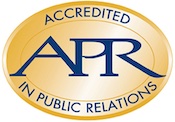 The leadership of Public Relations Society of America is backing a move to change the current “must-have” APR accreditation to “strongly preferred” as a requirement for a seat on its board of directors.
The leadership of Public Relations Society of America is backing a move to change the current “must-have” APR accreditation to “strongly preferred” as a requirement for a seat on its board of directors.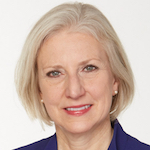 Public Relations Society of American today named Linda Thomas Brooks CEO, succeeding CFO Phil Bonaventura, interim chief since July 2019.
Public Relations Society of American today named Linda Thomas Brooks CEO, succeeding CFO Phil Bonaventura, interim chief since July 2019.


 Have a comment? Send it to
Have a comment? Send it to 
No comments have been submitted for this story yet.